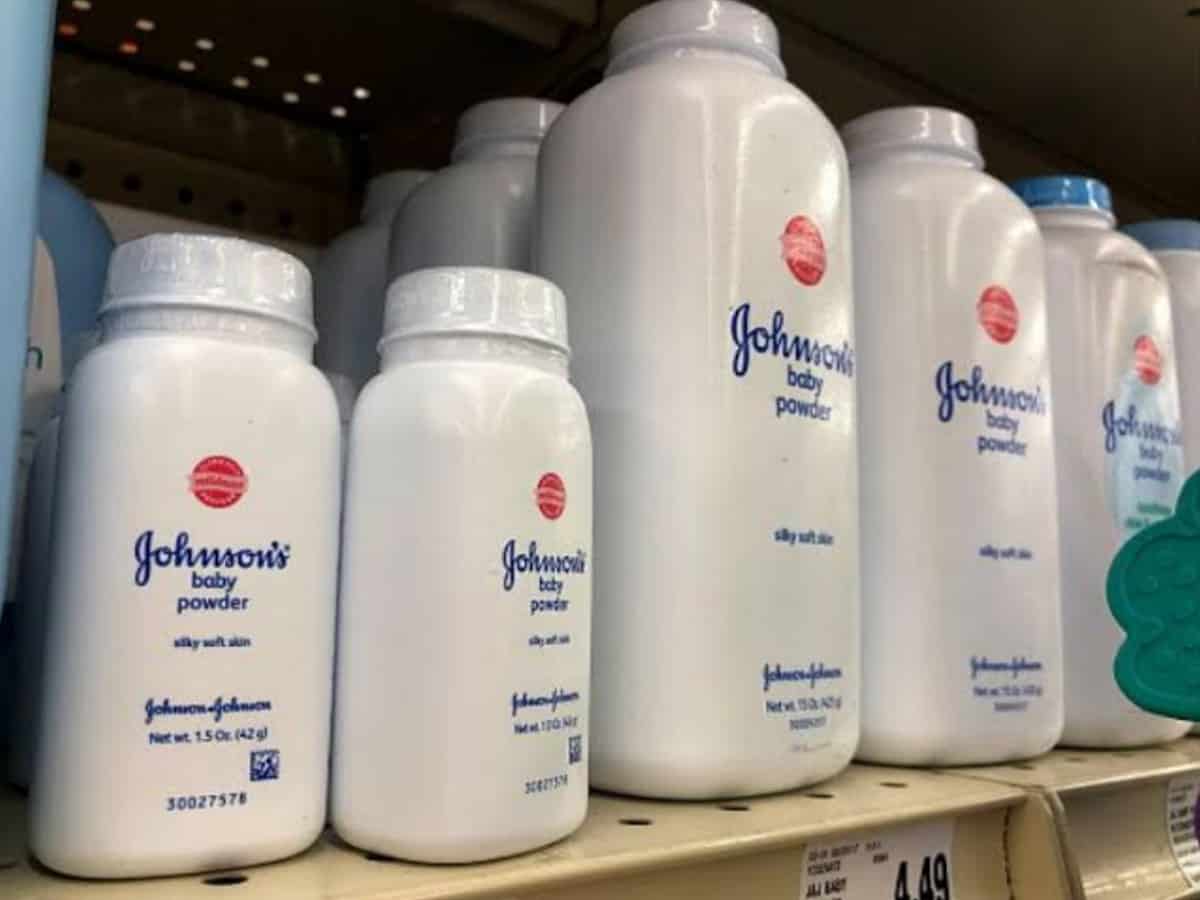
Mumbai: The Bombay High Court on Wednesday permitted Johnson & Johnson to manufacture, sell and distribute its baby powder and quashed three orders of the Maharashtra government revoking the company’s license and asking it to stop the product manufacture and sale, terming them as “stringent, unreasonable and unfair”.
A division bench of Justices Gautam Patel and S G Dige also came down heavily on the state Food and Drug Administration (FDA) for its delay in carrying out tests on a sample of the company’s baby powder seized in December 2018.
The bench noted that while maintaining standards of quality and safety are of utmost importance for cosmetic products, at the same time it does not seem reasonable to shut down the whole manufacturing process when there is a slight deviation in one of the products.
Such an approach would result in a considerable amount of “commercial chaos and wastefulness”, it said.
The orders of suspension and revoking of the license were passed based on the report of a lab that found the powder contained a higher pH level than prescribed.
The HC in its order on Wednesday noted the fresh tests conducted showed all batches of the baby powder product were compliant with the norms prescribed.
The court passed its order on a petition filed by the company challenging three orders of the state government one dated September 15, 2022, canceling the license, the second dated September 20, 2022, ordering it to immediately stop the manufacturing and sale of the baby powder product, and the third passed on October 15, 2022, by the state minister concerned upholding the earlier two orders.
The HC in its order said, “The executive cannot use a hammer to kill an ant. Is it always inevitable that when there is a single case of deviation or non-compliance (to prescribed norms) by a product the only option left with the regulatory authority is to cancel or revoke the license of the manufacturing company?”.
“This seems to us as an extreme approach. There seems to be unfairness and unreasonableness in the executive action. There is also nothing to show that the FDA has adopted such a stringent approach for any other product of the petitioner company or any other company,” it added.
Noting that the government orders cannot sustain, the HC quashed them and permitted the company to manufacture, distribute and sell its baby powder products.
The court also came down heavily on the FDA for the delay in carrying out tests on a sample of the company’s baby powder seized in December 2018.
A test on the sample was done in December 2019, as per the company.
The bench said the such delay is “unreasonable, unacceptable and arbitrary” and contrary to the provisions of law.
“Since 2018, when the sample was taken for test, the company has been manufacturing and selling its product till 2022 when its license was revoked. It is necessary to have a watchdog like the FDA but a watchdog must do its job of guarding. This is not achieved when there is a delay in testing samples,” it said.
The HC said a “more granular approach” would be available to the FDA under the provisions of law.
“It does not seem reasonable to us to accept that the moment a product is found to be deviant or non-conforming to the prescribed standards, then the only possible consequence is to shut down all manufacturing,” the court said.
Such an approach by the FDA would result in a considerable amount of commercial chaos and wastefulness, it said.
The orders of suspension and revoking of the license were passed by the joint commissioner and licensing authority of the state FDA based on a report of the Central Drug Laboratory in Kolkata, which found the powder contained a higher pH level than prescribed.
In December 2022, the high court had in an interim order permitted the company to manufacture its product but not distribute or sell it.
The HC had then ordered fresh samples to be collected from the company’s factory in suburban Mulund and sent to three labs two government and one private facility for testing.
The bench in its order on Wednesday noted that the fresh tests conducted showed that all batches of the baby powder product were compliant with the norms prescribed.
“The prescribed pH level is 5.5 to 8 and as per reports submitted by the government following fresh tests conducted, the products were compliant with the prescribed levels,” it said.
The company had in its plea said 14 random batches of February, March, and September 2022 were tested by an independent public testing laboratory and all were found to be well within the prescribed pH value.
The leading Fast Moving Consumer Goods (FMCG) manufacturer said it has been making baby powder in its Mulund plant for the last 57 years and its license was renewed in January 2020.
The company also said due to the license revocation, it suffered a daily loss of Rs 2.5 crore based on the market value of the goods sold.



